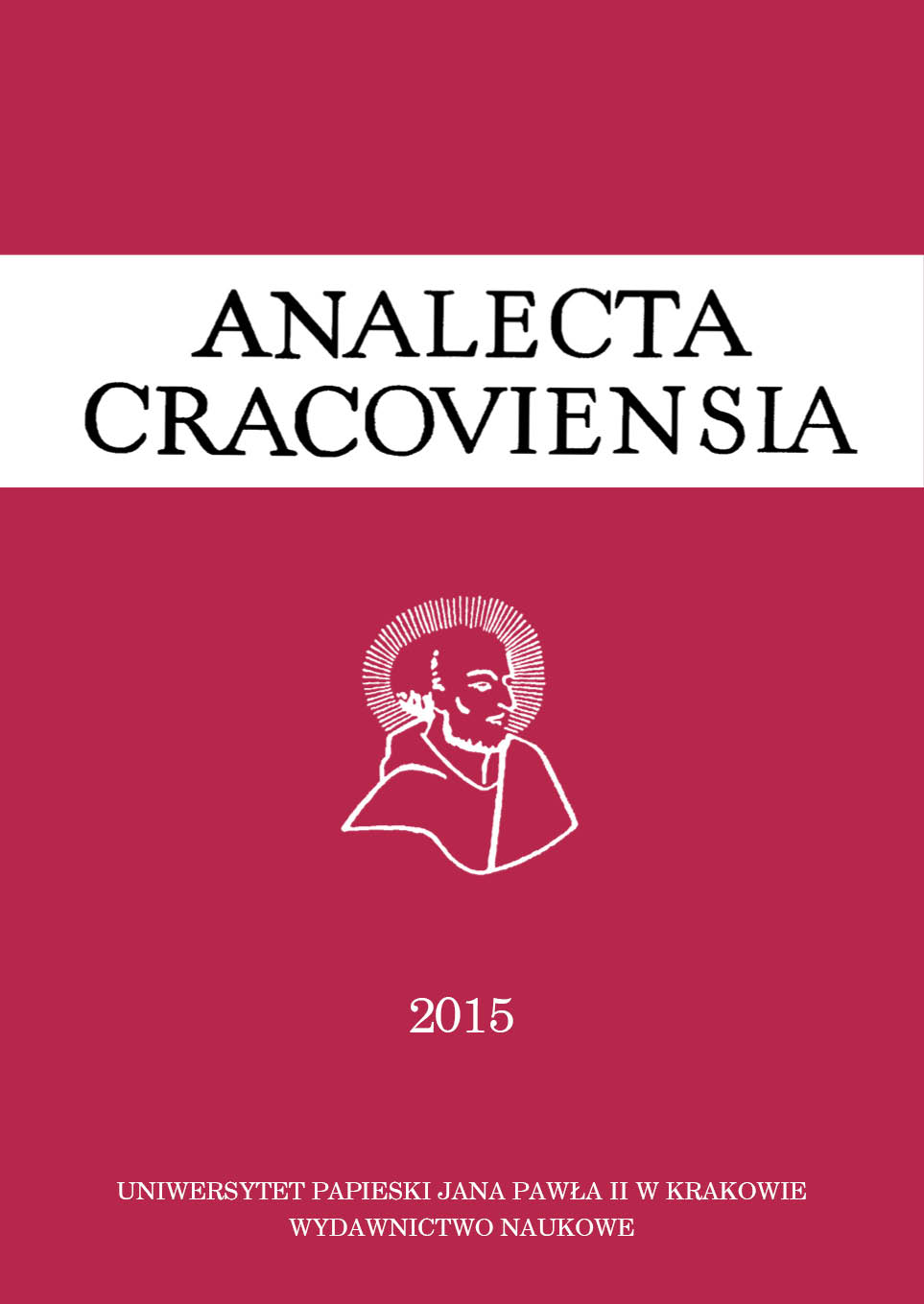The cognitive sciences and their method: a physicist’s perspective
DOI:
https://doi.org/10.15633/acr.1753Abstrakt
The contemporary research in neurobiology heavily rests on the application of complex experimental techniques. The primary aim is to determine the neuronal correlates of various mental phenomena such as abstract thinking, consciousness, free will etc. The application of the contemporary research in neurobiology to understand the nature and the function of the brain is currently having a strong impact on the classical philosophical discourse carried out in area of the philosophy of mind. In this article, a short analysis of one of the most widely used techniques in the neurobiological research is presented, namely, the functional magnetic resonance imaging (fMRI). The particular emphasis is to point out to the conceptual difficulties that arise between the language used at the experimental level (spins, molecules) and how this language might acquire its meaning to eventually refer to the mental phenomena represented by appropriate neuronal structures revealed in the experiment. The apparent disunity will be most likely remedied as a more unified theory relating mental phenomena to the specificity of the most fundamental level of the physical reality becomes available.Bibliografia
Bechtel W., Aligning multiple research techniques in cognitive neuroscience: why is important?, „Philosophy of Science” 69 (2002) no. S3, p. S48–S58.
Brożek B., Philosophy in neuroscience, [in:] Philosophy in science. Methods and applications, ed. B. Brożek, J. Mączka, W. P. Grygiel, Kraków 2011, p. 163–182.
Butterfield J., Isham C., Spacetime and the philosophical challenge of quantum gravity, [in:] Physics meets philosophy at the planck scale, ed. C. Callender, N. Huggett, Cambridge, MA 2001, p. 33–89.
Chalmers D., What is a neural correlate of consciousness?, [in:] Neural correlates of consciousness. Empirical and conceptual questions, ed. T. Metzinger, Cambridge, MA 2000, p. 17–39.
Churchland P. S., Brain-wise. Studies in neurophilosophy, Cambridge, MA 2002.
Cosmides L., Tooby J., Beyond intuition and instinct blindness. Toward an evolutionarily rigorous cognitive science, “Cognition” 1994 no. 50, p. 41–77.
Damasio A., Descartes’ error. Emotion, reason, and the human brain, New York 1994.
Davies B., Some recent articles about platonism, “EMS Newsletter” 2009 no. 64, p. 24–27.
Grygiel W. P., Metodologiczne aspekty uprawiania filozofii umysłu w kontekście nauk kognitywnych, [in:] Oblicza racjonalności. Wokół myśli Michała Hellera, red. B. Brożek, J. Mączka, W. P. Grygiel, M. L. Hohol, Kraków 2011, p. 51–62.
Handbook of functional neuroimaging of cognition, ed. R. Cabeza, A. Kingstones, Cambridge, MA 2006.
Heller M., How is philosophy in science possibile?, [in:] Philosophy in science. Methods and applications, ed. B. Brożek, J. Mączka, W. P. Grygiel, Kraków 2011, p. 13–24.
Huettel S. A., Song A. W., McCarthy G., Functional magnetic resonance imaging, Sunderland, MA 2009.
Keeler J., Understanding NMR spectroscopy, Chichester 2005.
Kurek Ł., Neurofilozofia jako filozofia w kontekście nauki, [in:] Oblicza racjonalności. Wokół myśli Michała Hellera, red. B. Brożek, J. Mączka, W. P. Grygiel, M. L. Hohol, Kraków 2011, p. 63–82.
Maurer A. A., Medieval philosophy, Toronto 1982.
Mumford D., Why I am a platonist, “EMS Newsletter” 2008 no. 70, p. 27–30.
Ogawa S., Lee T. M., Kay A. K., Tank D. W., Brain magnetic resonance imaging with contrast dependent on blood oxygenation, “Proceedings of the National Academy of Sciences (USA)” 1990 no. 87, p. 9868–9872.
Penrose R., The large, the small and the human mind, Cambridge, MA 1997.
Penrose R., The road to reality, New York 2005.
Quine W.V.O., On what there is, ”Review of Metaphysics” 1948, vol. 2, no. 5, pp. 21–38.
The MIT encyclopedia of the cognitive sciences, ed. R. A. Wilson, F. C. Keil, Cambridge, MA 1999.
Wigner E. P., The unreasonable effectiveness of mathematics in the natural sciences, “Communications on Pure and Applied Mathematics” 1960 no. 13, p. 1–14.
Załuski W., Pojęcie osoby w świetle nauk biologicznych, [in:] Oblicza racjonalności. Wokół myśli Michała Hellera, red. B. Brożek, J. Mączka, W. P. Grygiel, M. L. Hohol, Kraków 2011, p. 83–98.
Pobrania
Opublikowane
Numer
Dział
Licencja
Prawa autorskie (c) 2016 Wojciech P. Grygiel

Utwór dostępny jest na licencji Creative Commons Uznanie autorstwa 4.0 Międzynarodowe.
Obecnie autorzy publikujący w czasopiśmie udzielają jego wydawcy zgody o następującej treści:
- Autor zachowuje autorskie prawa majątkowe do utworu, a jednocześnie udziela wydawcy czasopisma zgody na jego pierwszą publikację w wersji drukowanej i wersji online na licencji Creative Commons Uznanie autorstwa 4.0 Międzynarodowe oraz zgody na wykonywanie opracowań, w tym przekładów.
- Autor ma możliwość udzielania zgody niewyłącznej na opublikowanie utworu w wersji, która ukazała się w czasopiśmie (np. zamieszczenia go w repozytorium instytucjonalnym lub opublikowania w książce), wraz z informacją o jego pierwszej publikacji w czasopiśmie.
- Autor może umieścić swój utwór online (np. w repozytorium instytucjonalnym lub na swojej stronie internetowej) jeszcze przed zgłoszeniem utworu do czasopisma.

